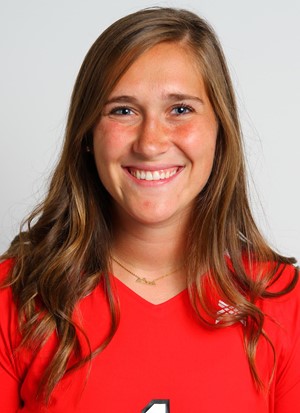Math At Grace
Advice for Math Education Majors
Published Feb 09, 2020
The following Advice for First Year Math Education students was given to us by Deb Michaski, who recently graduated at the end of fall semester, 2019.
Deb graduated from Grace with a major in mathematics education last December. She is currently teaching overseas in Kosovo. She played on the women’s volleyball team all four seasons.
from Deb:
Extend grace to yourself.
Adjusting to college life on top of learning how to study for college-level courses is no easy task. Remind yourself of that, take deep breaths often, and view challenges or failures as opportunities to grow! As an aspiring educator of 6th-12th grade students, you may be wondering why in the world you need to take a multitude of upper level courses including Linear Algebra and Probability Theory. You might feel flat out underqualified. So did I. As I struggled through those courses, I found myself questioning my decision to teach math. I wondered what happened to me because I excelled at math in high school and loved doing math, but now the content of these courses didn’t come as easy and I wasn’t so sure.
I realized that a similar situation might be true for my future students. Perhaps they excelled at 7th grade math the previous year, then when Pre Algebra hit, it didn’t come as easy and they weren’t so sure. By digging my heels in and working hard to understand the material and view these challenges as opportunities to grow, I feel more equipped to relate with my students in ‘the struggle’ and encourage them to seize opportunities for growth.
Positive self-talk.
If you absolutely bomb a test, your life is not over, you can recover and you will be a good math teacher. Don’t let yourself slide into believing that you’re ‘not good at math’ because you’re now in the big leagues. That’s like an NBA player saying they’re not good at basketball because they sit the bench a lot. That is clearly untrue.
Humble yourself.
Ask for help! The professors are more than just ‘willing to help you’, and it is not ‘just their job’, but they truly love helping you because, well, they love math more than you knew was possible, and they care about you! Don’t be afraid to grab a classmate who seems to understand a concept you’re struggling to learn and ask them if they could explain it to you in a different way. I can assure you that it will be so beneficial for both you and your classmate friend.
Community works.
Your classmates are your friends, not your competition! Chances are, if you’re struggling to understand a concept, you’re not the only one. Get together with your classmates and work through it together. I highly recommend study/hangouts. In my opinion, what’s better than a big ole’ math assignment than a big ole’ math assignment with friends!? The math lounge is a pretty fun place. I considered it my second home. :) And, as weird as it may seem, my math nerd friends and I have such deep bonds from getting slap happy from studying into the wee hours of the morning in our second home. And while math was the basis for our friendship at first, I have been blessed to share meals and engage in deep conversation, spend spring break, and continue relationship with my dear friends as we have scattered all over the world.
Hard Work Pays Off:
Not only did I come away with a better understanding of and compassion for my students and the struggles they face, but also a plethora of practical instructional and management strategies that I have already begun implementing in my classroom. I can look back at my 3.5 years and remember the struggles I faced, but more importantly, I can recount the triumphs that met each of those struggles and be thankful for the opportunities I was given to grow. Though I questioned my decision to major in math education in my first year, I am so glad I continued on the path! Regardless of what twists and turns your path takes, I pray that you will be able to embrace opportunities for growth all along the way.
To hear more from Deb about what she’s doing in Kosovo and how you can pray for her, check out her personal blog.
